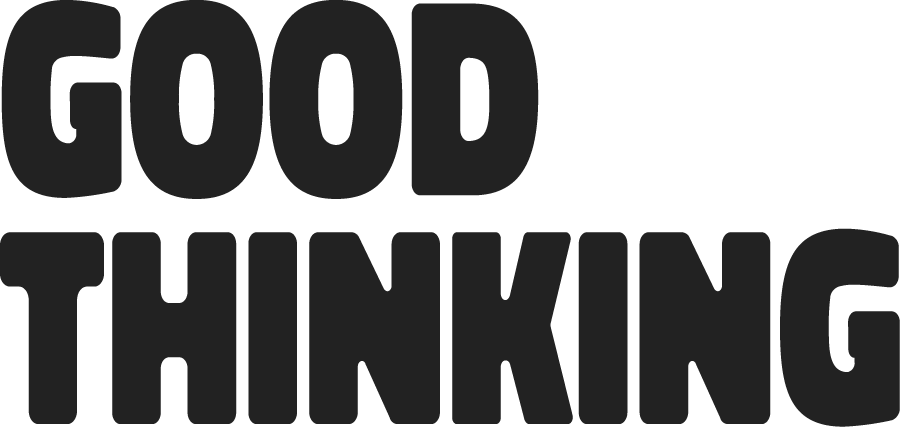Finding the right coach
7 things to look for in a listening partner
There are plenty of coaches out there, but not all of them will be suitable for you, or your team. So how do you select? Spoiler alert: there’s no straight answer, but here are my suggestions about what to consider.
Rapport
First and foremost, is there a sense of rapport between you? Do you like their vibe, their presence? Do they put you at ease? Can you be honest, vulnerable, authentic, creative in their presence? If rapport isn’t there, or you’re hesitant about them in any way that they can’t address very easily, then they’re probably not right for you. It’s as simple as that.
Any coach will be happy to have an informal chat with you before you commit. You can use that time to ask them about the points below, and see whether you like the way they answer. Never feel embarrassed to raise rapport as a reason not to work with someone. It’s a completely legitimate criteria, and a decent coach will probably have spotted a lack of it before you do.
Purpose
What are you hoping to get out of coaching? In some instances, you may want someone with a specialism, for example career or health coaching. Or with a specific target audience, such as retirees, or female founders. In theory, a decent coach can support anyone with any challenge, because they are coaching the person, not the situation, but many choose to specialise, which may help you choose.
Recommendation
Social proof is a powerful force, so a recommendation from a friend or colleague can feel like a short cut to the perfect coach. But see point 1. Every coachee is different, every challenge is different, and every coach-coachee combination is different again. No matter how highly they are spoken of, make your own decision on the rapport, before moving on.
Training and qualifications
A thorny issue, this one, because there are some great coaches who don’t have either, and some rubbish ones who do. Coaching is an unregulated industry, so anyone can say they are a coach, and many great managers and leaders use coaching skills as part of their day jobs. Doesn't make them a coach though.
‘Training’ can range from a 2 hour webinar via Instagram, to a Masters programme at a university or business school, but a good start is to look for a Professional or Post-Graduate Certificate or Diploma, or an ILM level 7 course. These usually take between 9 months and 2 years to complete and ensure a theoretical/academic understanding of the principles, practical skills training, exposure to some established coaching approaches (see next point) and knowledge of ethical and contractual obligations and issues.
Approaches to coaching
Closely connected to qualification is the approach to coaching. This broadly means the model, or framework that is used to underpin the coaching process. There are many of these, ranging from those rooted in evidence-based psychological models, to others resembling astrology (I’ve come across an approach that uses your time and place of birth as a basis for coaching. You can guess what I think of that).
Some may be familiar as part of everyday management techniques (eg, GROW), and others need extensive training and expert application.
What’s hard about this area is that coaches often use language that’s just not accessible to the person choosing. Humanistic? Psychodynamic? Cognitive behavioural? Co-active? Not generally helpful to the average person, especially when it may not be clear to you exactly what kind of help you need.
Any coach should be able to explain the approach(es) they use, and why, in straightforward language. And if they specialise in one specific approach, have a chat with them about why that might work in your specific case. The approach should be in the service of the coachee, not the other way around.
Accreditation
A bit like qualifications, those who are accredited believe passionately that it’s the right thing to do, and those who aren’t, don’t! Also known as credentialed, or affiliated with a professional body.
Bodies to look out for are the International Coaching Federation, European Mentoring and Coaching Centre, or the Association for Coaching, all of which offer thorough accreditation schemes. Being credentialled means operating under a code of ethical practice. It also means that skills have been assessed, and knowledge and experience in coaching measured. It also means undertaking CPD, mentoring and supervision (coaching for coaches) on a regular basis.
Again, some great coaches aren’t accredited with any professional body, but they should be happy to tell you how they continue to maintain and develop their skills.
Contracting
This is the process of setting up the relationship, and needs a clear and conscious approach. Great coaching partnerships don’t just happen, they are contracted. During contracting, you’ll agree how you’re going to work together, and address some ‘what ifs’. What if you need to rearrange? What if you start to feel directed or advised, rather than listened to?
If you’re accessing coaching through work, it’s possible contracting will involve a three way conversation between the employer, coach and coachee up front to agree success metrics, and levels of check-ins. Beware a coach who cracks straight on with the issue, and doesn’t take any time to discuss how the relationship will work. This could be a sign of lack of experience or training.
So, a few things to think about when selecting a potential coach. Of all the criteria, the most important is rapport, because if it’s not there, then the rest are irrelevant. And if it is, then you’ve potentially got yourself a powerful thinking partner.
Photo by Chase Clark on Unsplash

